Sulfasalazine
Uses
Sulfasalazine is used in the treatment of ulcerative colitis, Crohn’s disease, systemic lupus erythematosus, Wilson's disease, ankylosing spondylitis, psoriatic arthritis, rheumatoid arthritis, and type 2 diabetes mellitus.
How it Works
How Sulfasalazine works Sulfasalazine is a disease-modifying anti-rheumatic drug (DMARD). It functions by suppressing the overactivity of the immune system in autoimmune diseases and blocking the chemical messengers that lead to inflammation.
Side Effects
Common side effects of Sulfasalazine include headache, nausea, oligospermia (low sperm count), vomiting, decreased appetite, decreased white blood cell count, dizziness, fever, insomnia (difficulty sleeping), itching, joint pain, photosensitivity, protein in urine, rash, stomatitis (inflammation of the mouth), taste changes, and dyspepsia.
Expert Advice
- Take it with food to avoid an upset stomach.
- It may take 6-8 weeks for Sulfasalazine to become effective.
- Continue taking it as prescribed.
- Drink plenty of fluids while taking Sulfasalazine to prevent kidney issues, such as kidney stones.
- It may cause a deficiency in folic acid; take supplements as recommended by your doctor.
- Do not take Sulfasalazine if you are allergic to sulfa drugs or aspirin.
- It may cause discoloration of your skin, urine, saliva, and tears to an orange/yellow color; this is normal and not harmful.
- Regular blood tests are required to monitor your liver function, kidney function, and blood component levels while taking this medication.
- Do not stop taking the medication suddenly without consulting your doctor.
Related Medications
Sulfasalazine 500mg

₹61

₹55
MRP ₹69.6
Sulfasalazine 500mg

₹88

₹55
MRP ₹69.6
Sulfasalazine 500mg

₹85

₹55
MRP ₹69.6
Sulfasalazine 500mg

₹55

₹55
MRP ₹69.6
Sulfasalazine 500mg

₹41.4

₹55
MRP ₹69.6
Sulfasalazine 500mg

₹55
MRP ₹69.6
Sulfasalazine 1000mg

₹146

₹137.8
MRP ₹246.1
Sulfasalazine 1000mg

₹114

₹137.8
MRP ₹246.1
Sulfasalazine 1000mg

₹149

₹137.8
MRP ₹246.1
Sulfasalazine 1000mg

₹246.1

₹137.8
MRP ₹246.1
Sulfasalazine 1000mg
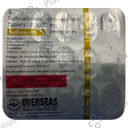
₹115.5

₹137.8
MRP ₹246.1
Sulfasalazine 1000mg

₹145

₹137.8
MRP ₹246.1
Sulfasalazine 500mg

₹74.3

₹55
MRP ₹69.6
Sulfasalazine 500mg

₹62
MRP ₹75.6
Sulfasalazine 500mg
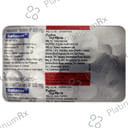
₹49.5

₹55
MRP ₹69.6
Sulfasalazine 500mg

₹97

₹55
MRP ₹69.6
Sulfasalazine 500mg

₹44.5

₹55
MRP ₹69.6
Sulfasalazine 500mg

₹58

₹55
MRP ₹69.6
Sulfasalazine 500mg

₹80

₹55
MRP ₹69.6
Sulfasalazine 500mg
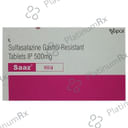
₹50.4

₹55
MRP ₹69.6
Sulfasalazine 500mg

₹67

₹55
MRP ₹69.6
Sulfasalazine 500mg

₹57.4

₹55
MRP ₹69.6
Sulfasalazine 1000mg
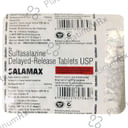
₹195
Sulfasalazine 500mg
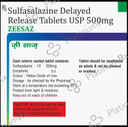
₹45
Sulfasalazine 500mg

₹64.9
Flat ₹100 off on first app order | Use Code: APP100 |
Flat ₹100 off on first app order
USE CODE: APP100

Download Now